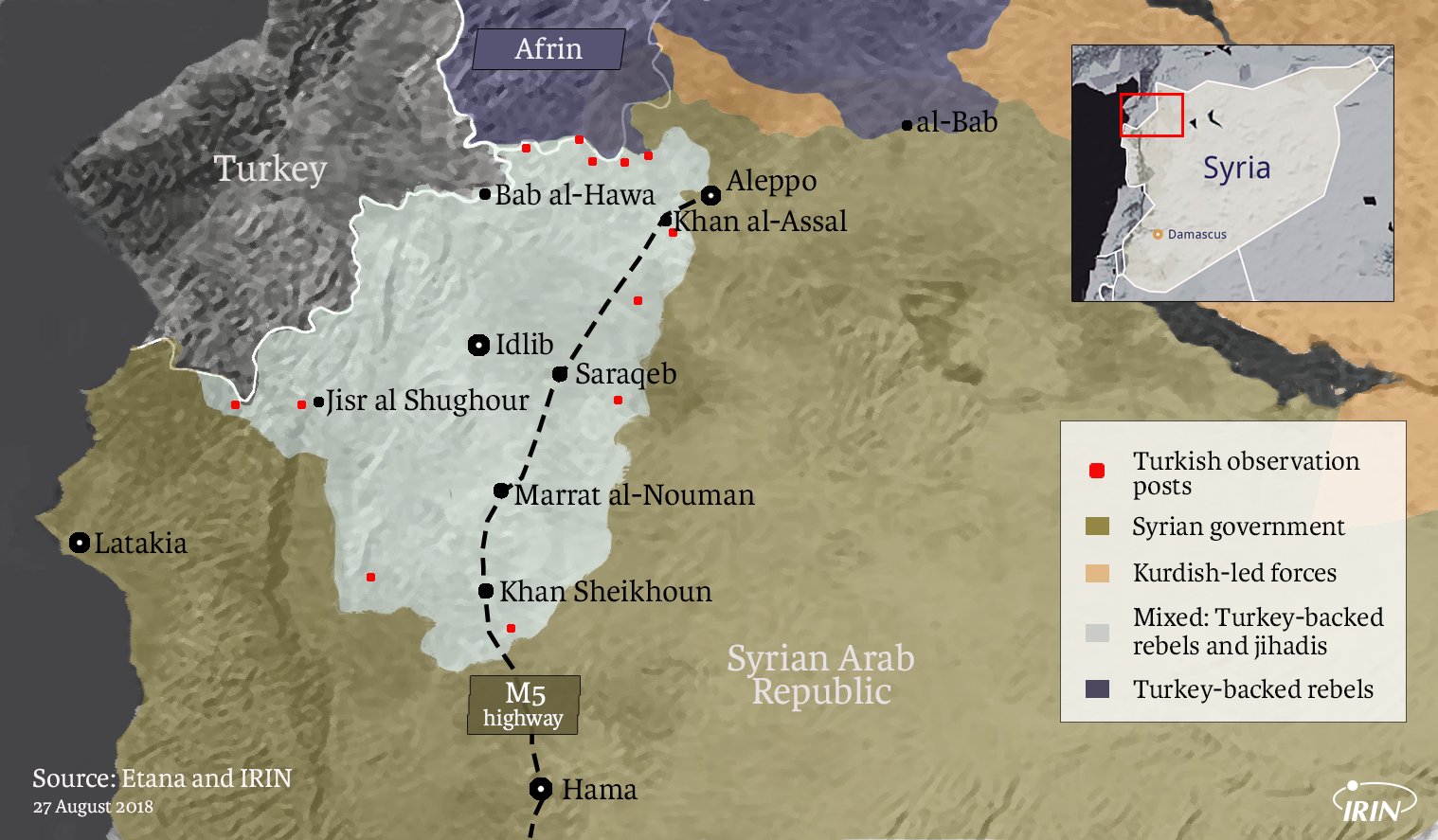
According to media reports, the French Intelligence have given information to Mohamed al-Golani, the head of the Al Qaeda branch in Syria, formerly known as Jibhat al-Nusra, but now rebranded as Hayat Tahrir al-Sham (HTS).
The report said there are members and leaders of Jolani’s fighters who are working with, and giving information to the Russian and Syrian military about Idlib. Based on that information Jolani has arrested over 300 HTS fighters and leaders, as well as members of the Idlib administration. In the last few days, Jolani has hung tens of people, all without legal procedures.
Jolani is responding to recent Russian and Syrian targeted airstrikes on warehouses and positions of HTS causing a great deal of deaths among the terrorist group.
The last meeting in Astana has failed to find a solution for the political conflict in Syria. The battles have started again between the Syrian Arab Army and Russia, from one side, and the U.S. supported Radical Islamic terrorists in northwest Syria on the other side.
Idlib
Idlib is an agricultural province in northwest Syria. When the U.S.-NATO war on Syria started in 2011, many people in Idlib supported the U.S.-Turkey backed “revolution”. It was one of the first cities in Syria to go completely under the control of Radical Islamic terrorist groups. In the beginning of the war, the main terrorist group that was in control was called Jabhat Al-Nusra. The international community put Jabhat Al-Nusra on the world terrorist list, and that was when they changed their name to Hayat Tahrir al-Sham, to keep getting aid from enormous NGOs like: USAID, UN, White Helmets, Doctors Without Borders, and others.
The leader of Jibhat al-Nusra is Abo Mohammed Al-Golan, who was originally a member of Al Qaeda in Iraq, and was imprisoned in Iraq, where he became good friends with Abu Baker Al-Baghdadi, the leader of ISIS. They made a deal that Baghdadi will be the leader of ISIS in Iraq and Golani in Syria, but when Golani got out of prison and got to Syria he did not go through with the deal. He made and became the leader of his own Radical Islamic group, Jabhat Al-Nusra, which was the Syrian branch of Al Qaeda. Jabhat Al-Nusra became the most vicious fighting group in Syria, and caused the Free Syrian Army (FSA) to disappear.
The Russian role in Syria
The relationship between Syria and Russia goes back decades. During the war in Syria, the Russian support was seen only as a political force in the UN, but by September 2015, Jibhat al-Nusra has control over a vast area in Syria, and the government requested military help from Moscow. The Syrian and Russian military both in a very short period of time pushed back the Radical Islamic terrorists groups such as the FSA, Jabhat Al-Nusra, and ISIS and regained control of large areas of Syria.
The latest update in the Battlefield:
On June 23, the Radical Islamic terrorists groups in Idlib carried out several drone attacks on the suburbs of Latakia and Hama, causing the deaths of several women and children.
On June 24, the Syrian Army and Russian Air Force targeted several positions of HTS, and killed several of the terrorists and destroyed missile launchers, weapon storages, and a drone factory.
The Russian Air Force targeted positions of HTS in the suburbs of Latakia. The Syrian and Russian attack on the headquarters and positions of HTS in Idlib was in response to the drone attack.
The airstrikes included several training camps and headquarters for the Uyghur terrorists (TIP) that came from China to fight in Syria. The Uyghur ethnic group in China is Chinese citizens living in the far west of China.
They are Muslims, and have formed a radical political party which seeks to change the government into an Islamic State.
Turkish President Erdogan issued forged Turkish passports to the Uyghurs and allowed about 5,000 of their members to travel by air to Turkey, where their passports were taken from them, and they were transported by Turkish official vehicles to Idlib.
With the recent complete reversal of Turkish foreign policy it remains a mystery as to what is the future of Idlib.
By Steven Sahiounie, A Syrian American award-winning journalist based in Syria. He is specialized on the Middle East. He has also appeared on TV and radio in Canada, Russia, Iran, Syria, China, Lebanon, and the United States.
Published by SCF
Republished by The 21st Century
The views expressed in this article are solely those of the author and do not necessarily reflect the opinions of 21cir.com
